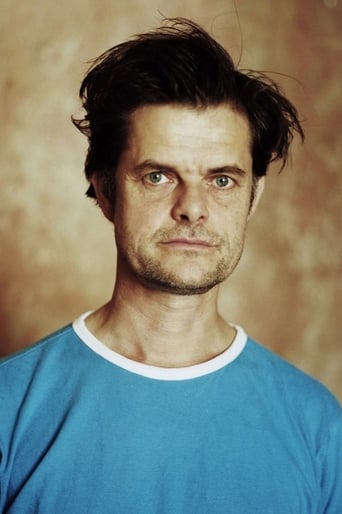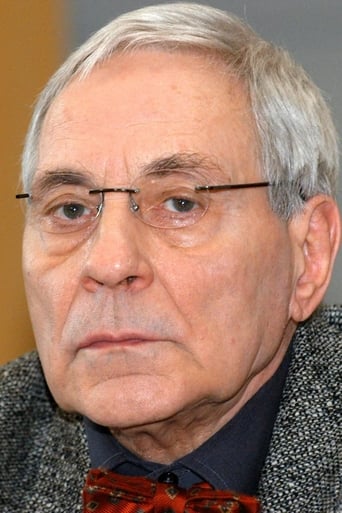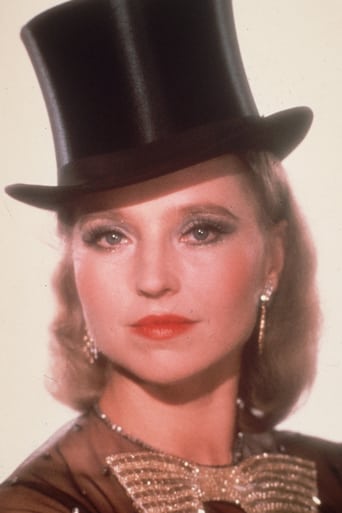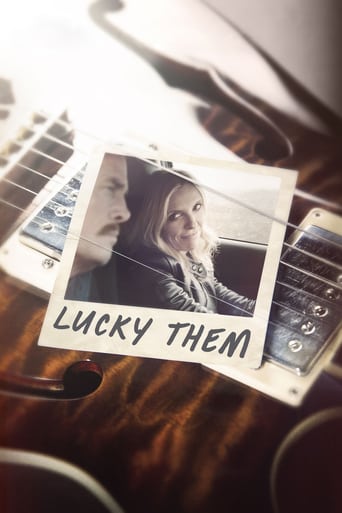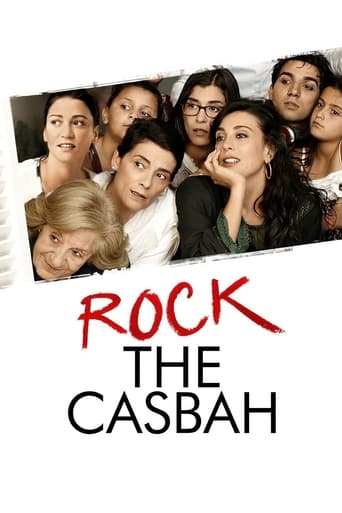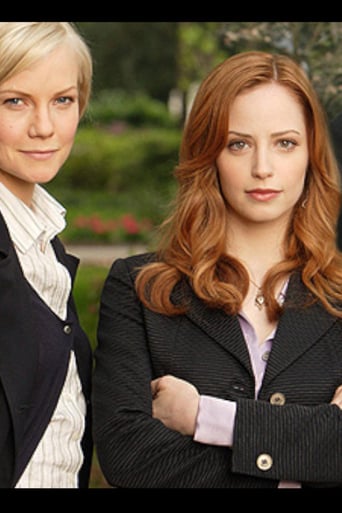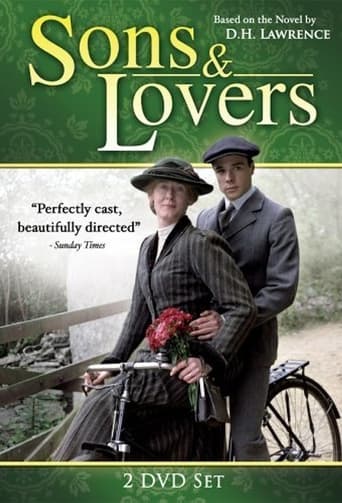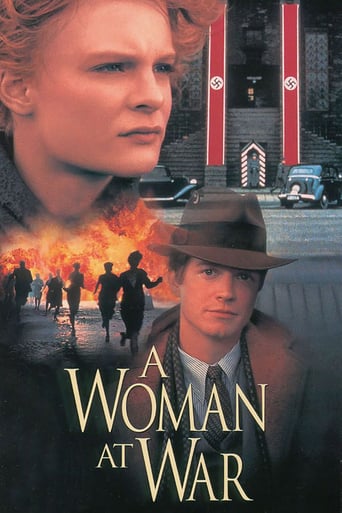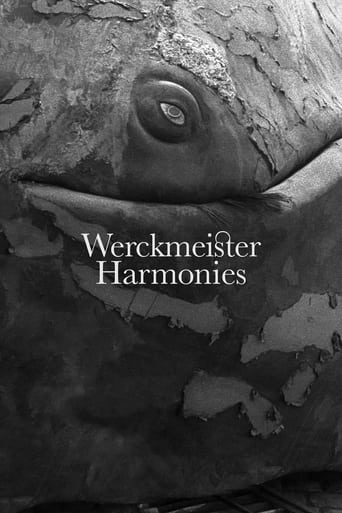
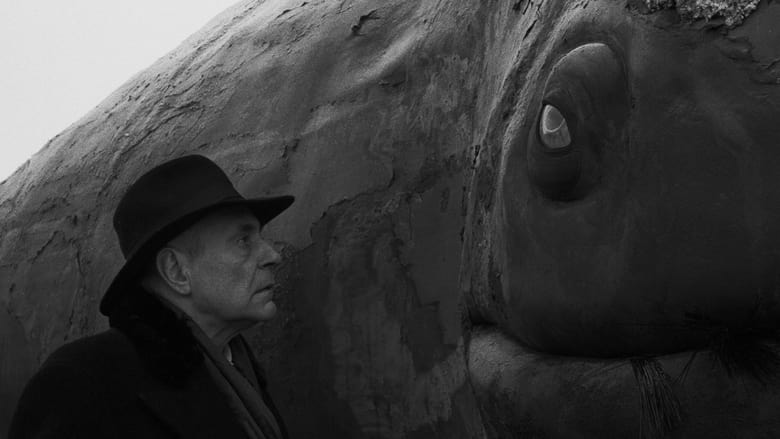
Werckmeister Harmonies (2001)
A mysterious circus excites a small Hungarian town into a rebellion when a promised act doesn't perform.
Watch Trailer
Cast


Similar titles
Reviews
I have seen this movie first while the memory of the 1999 total solar eclipse across Central Europe was still fresh in me. It is like the eclipse, both in its queer beauty and the chilling way it reveals nature's secrets.It also has its own pace. If you expect something to happen in a movie in every minute, don't watch this, you won't like it. However if you liked the slowness of Tarkovsky pictures for example, then this one is for you. This movie is a delight to the senses, a feast of fantastic pictures and music. And you're given time to enjoy it.It took me some thought to realize I actually know the town in which it was photographed, because they have omitted all the particular details, but they still retained what's common in all towns like Baja. The miniature society of this town is presented to the viewer with absolute clarity. There's not a single character and act in it without a role and a reason. Then the actions get out of control and they become history over the heads of its creators. There's one moment of magical hope in it though which stops the madness.The script of the movie is thoroughly self-referential, so let me sum it up with a line from it:"They also say... the whale's got no part in it. Then the next moment, that the whale is the cause of it all."
Béla Tarr's 2000 film "The Werckmeister Harmonies" deals with troubling events in a small town in Hungarian's eastern plains. After an opening scene showing simpleton postman János demonstrating to a bar full of drunks how the Earth and moon rotated around the sun with the help of three of the old geezers, he does his rounds in the early morning. Posters put up advertise the arrival of a giant whale with special guest, the Prince. This travelling circus, however, fills the townspeople not with eager anticipation but with dread. Indeed, when the Prince does appear, all hell breaks loose.Based on the novel "The Melancholy of Resistance" by László Krasznahorkai, the plot of this film is a transparent allegory for Hungary in the 1930s and 1940s: unable to keep its house in order, and falling for the demagoguery of fascism, Hungary brought on itself its long nightmare of Soviet domination. Tarr has curiously stated, however, that he is not offering us a historical allegory. By that I can only imagine that he is turning the allegory into a parable, using a reference to mid 20th-century Hungary as way of exploring more universal themes. Perhaps the central tension in the film is between a natural order, the ecstatic cooperation of free human beings, and an order dictated by a manipulative leader. I don't want to spoil anything that happens here, but Tarr's depiction of a mob let loose is harrowing.Tarr is truly the heir to Andrei Tarkovsky in treating filmmaking as "sculpting in time". "The Werckmeister Harmonies" was expertly filmed in 39 long, carefully composed shots. These carefully crafted visuals demand a high-definition release, though unfortunately one is not yet available as I write this.I was very moved by this film the first time I saw it, and on repeat viewings there has been much to appreciate. However, there is one painful flaw for me: Tarr's decision to use German actors for two main roles. Lars Rudolph, who plays János, and Fassbinder mainstay Hanna Schygulla as the sinister "auntie Tünde" give physically commanding performances, but they were presumably speaking in German while acting, and Tarr has had them clumsily dubbed into Hungarian, no synchronization between their mouths and the voices.However, if you are interested in auteur cinema, and certainly if you have enjoyed other films by this director, then I would recommend seeing "The Werckmeister Harmonies". There are scenes in this film that will remain with you as long as you live.
Once you understand the allegory the story snaps into place it becomes a challenge to find the ideas hidden in the shadows.The theme is the eclipse of darkness cast over a people by an occupying government. At the time of this review there is turmoil in Ukraine with many similarities. Many reviewers start with the line that this is about a whale that comes to town, it is like saying Animal Farm is about a fat pig and his friends. Watch the film this way and you will be disappointed.This film is the most visually poetic films I have ever seen. The most powerful shot is the quiet sound of marching and rocking as rioters march to the hospital it is hypnotic and oddly beautiful. You almost become one of the rioters as you get swept up in this pointless crowd-think not knowing or caring where it is going. Social upheaval does not always need a reason. The sick helpless patents in the hospital are a mirror of the rioters themselves.A reoccurring theme is the transitions from darkness to light. In the opening scene the light represent the warm sun of self determination which transitions to the people thrown out through a door in to the dark of night. The circus arrives like a Trojan Horse in the darkness of night. There is a wonderful poetic scene were the lead character walks in and out of the shadows .The film is in b&w.Some of the themes of this film can be extracted in to our modern world. The rioting was similar to the rioting in London which appeared to be of nothing in particular and self-destructive. The whale, parallels large centralised government systems that leave citizens feeling powerless. The shadow of The Prince is the unseen PR machinery and lobby groups. At the end of the film János is drugged and silenced in a mental asylum for political dissidents this could be extended to the large scale use of drugs such as Ritain and SSRI's as well as a mind-numbing media being effective as a form of people management.György's utopian approach to music represents a flawed naive idealism that never can be achieved, it is not developed any further in the film or the book. It is just a statement that human governance will always be flawed. A less cryptic name for the film might be "The Inevitably Flawed Paradox of Human Governance" but that would destroy the enigma that this film is. It is an acknowledgement even when light of self government comes there will still be flaws because we are human.This is much more accessible than Andrei Tarkovsky's Mirror but not quite as rewarding perhaps because it is not so personal.This film reminds me how rewarding a film can be and it stands out from much of the inevitable popcorn that is numbing and drowning us every day.
I appreciate the previous review explaining the movie's similarities to Buddhist emptiness and discussing Mizoguchi's influences but the incredibly slow pace of the movie and incredibly long takes made me press the FF button of my DVD player and believe me it happens extremely rarely. There are many other excellent artistic movies with a slow pace e.g. Institute Benjamenta but their "magic" makes us watch them with constant interest. OK, there is a rhythm in the Wreckmeister's long takes and there is a visual magnetism of black and white presentation of a poor little town but the monotonous film lasts for much too long- much too long- much too long- (and so on for 141 minutes). Well, no to be totally critical, there is a clear advantage of such movie structure- you can safely take a toilet break or bring a cup of tea from your kitchen and when you are back... they are still walking (and walking, and walking).


